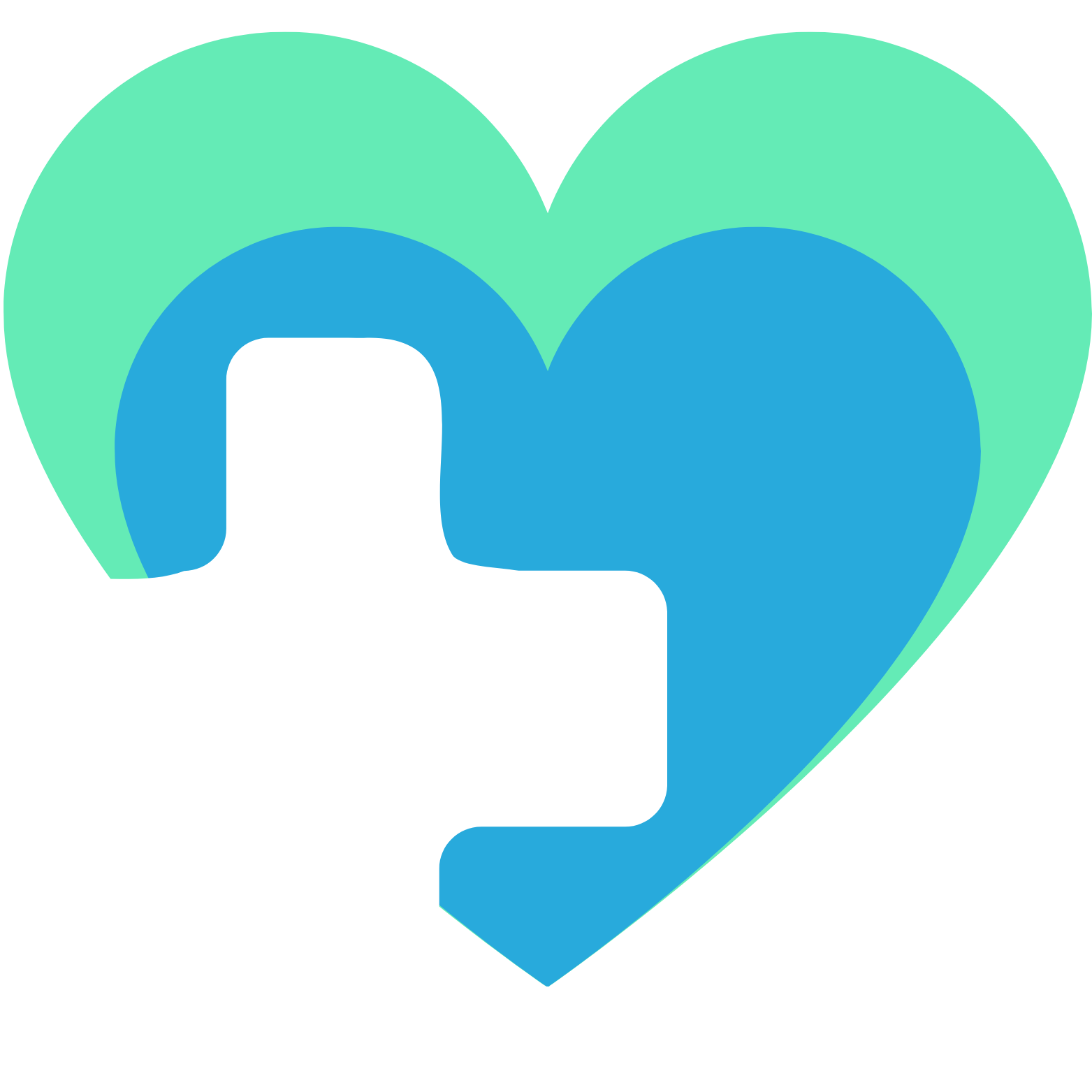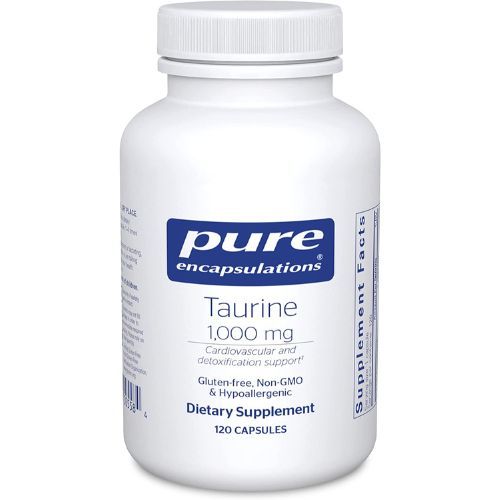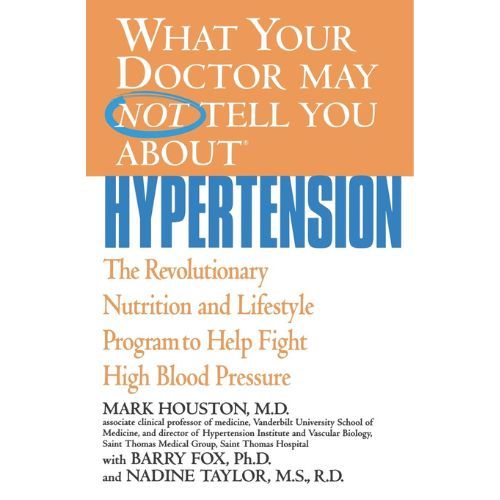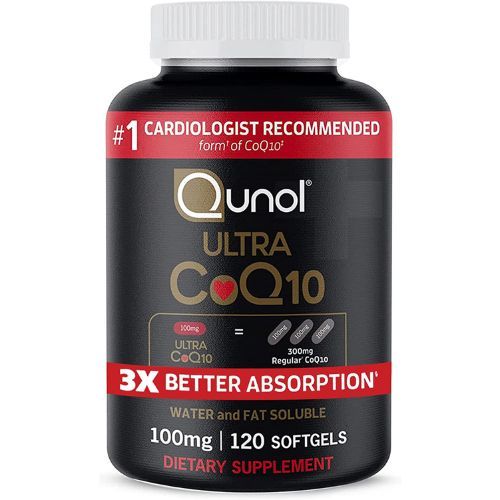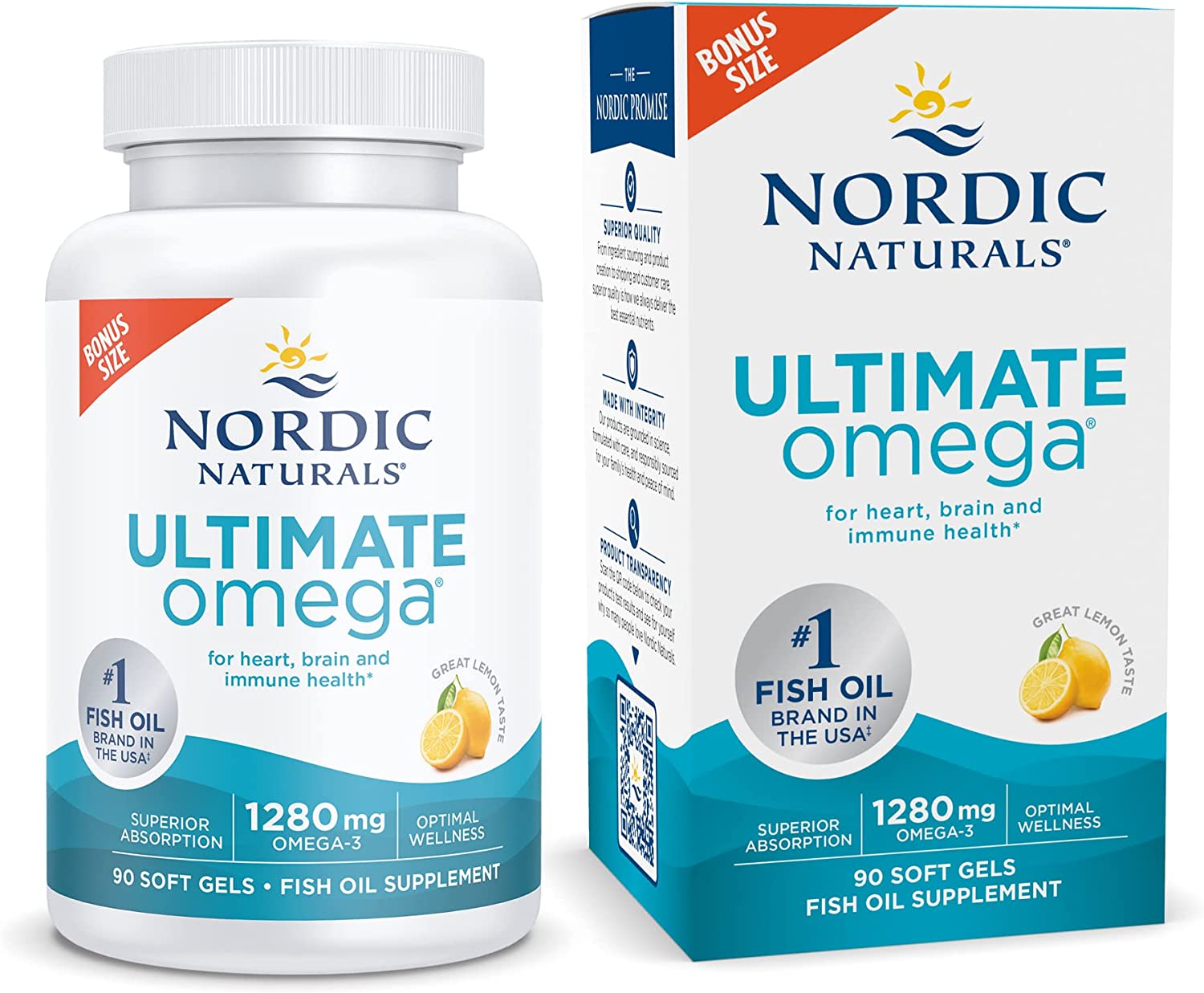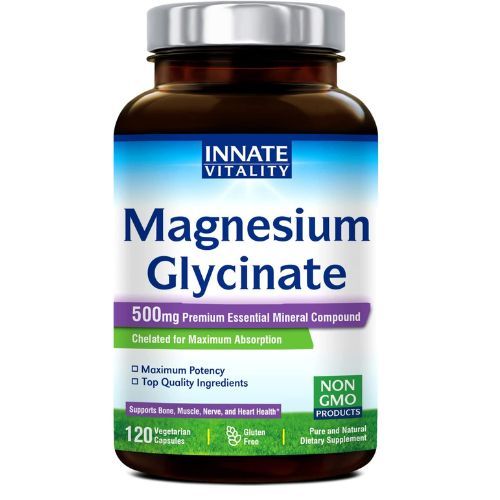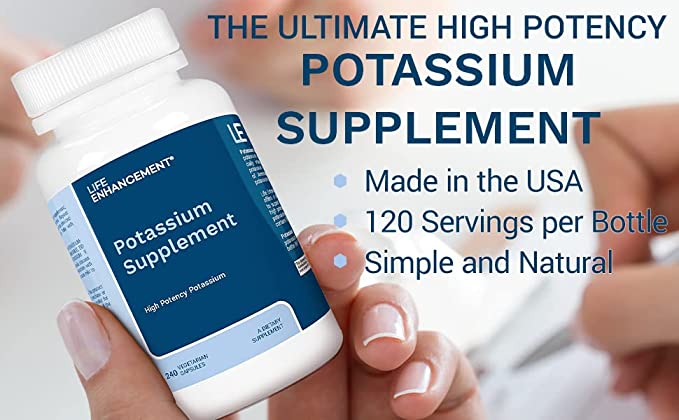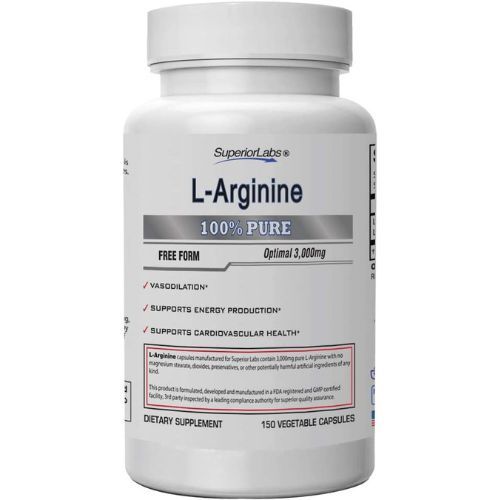High blood pressure is no joke, but you don't have to rely on medication alone to control it. Check out our list of the 11 best non-pharmacological treatments for hypertension and get your BP under control!
Seeking non-pharmacologic hypertension treatments? This article covers various options, including lifestyle changes, alternative therapies, and tips for managing hypertension effectively. Discover the benefits and how to begin your journey towards better health without medication.
Dr. Mark Hyman, a functional medicine practitioner, offers several recommendations for managing hypertension, focusing on healthy lifestyle changes, dietary habits, and natural treatments. Some of his key suggestions include:
1. Adopt a whole-food, plant-based diet: Consume a diet rich in fruits, vegetables, whole grains, legumes, nuts, and seeds, while minimizing processed foods, added sugars, and unhealthy fats.
2. Limit sodium intake: Aim to consume no more than 2,300 mg of sodium per day, and opt for fresh, unprocessed foods whenever possible.
3. Increase potassium intake: Focus on potassium-rich foods like leafy greens, avocados, sweet potatoes, and bananas to help balance electrolytes and reduce blood pressure.
4. Manage stress: Practice stress-reduction techniques such as meditation, yoga, deep breathing exercises, or tai chi to promote relaxation and lower blood pressure.
5. Engage in regular physical activity: Aim for at least 150 minutes of moderate-intensity exercise or 75 minutes of vigorous-intensity exercise per week.
6. Maintain a healthy weight: Excess weight can contribute to high blood pressure, so work towards achieving and maintaining a healthy weight through diet and exercise.
7. Limit alcohol consumption: Moderate your alcohol intake, as excessive consumption can increase blood pressure.
8. Quit smoking: Smoking is a major risk factor for hypertension and cardiovascular disease. Quitting can significantly improve your overall health.
9. Ensure adequate sleep: Aim for 7-9 hours of quality sleep each night, as poor sleep can contribute to hypertension.
10. Consider supplements: Consult with a healthcare professional to discuss the use of supplements like magnesium, CoQ10, omega-3 fatty acids, and garlic extract, which may help manage hypertension.
It's important to work closely with your healthcare provider when making lifestyle changes or starting any new treatment regimen. They can help you develop a personalized plan that's safe and effective for managing your blood pressure.
How We Choose
Untreated high blood pressure is a serious health issue, but medications and lifestyle changes aren't the only options. Non-pharmacologic treatments like yoga and acupuncture are gaining popularity, but choosing the right one can be difficult.
Our experts have reviewed numerous studies to identify the best non-pharmacologic treatments for your needs, saving you time and guesswork. Discover safe, effective solutions to manage your hypertension quickly and easily!
When you shop through links on our site, we may earn an affiliate commission. This educational content is not intended to be a substitute for professional advice.
Bronson Vitamin D3 and K2
Why We Rave About It:
Bronson Vitamin K2 (MK7) with D3 Supplement is an affordable, high-quality option to boost cardiovascular health and regulate blood pressure. Combining essential Vitamins D and K2, it promotes calcium absorption and prevents buildup in blood vessels.
More You Should Know:
Easy to take and suitable for sensitive individuals, this supplement also improves bone health and energy levels. Gluten-free, non-GMO, and vegan-friendly, it ensures optimal Vitamin D benefits for your cardiovascular well-being.
Promising Review
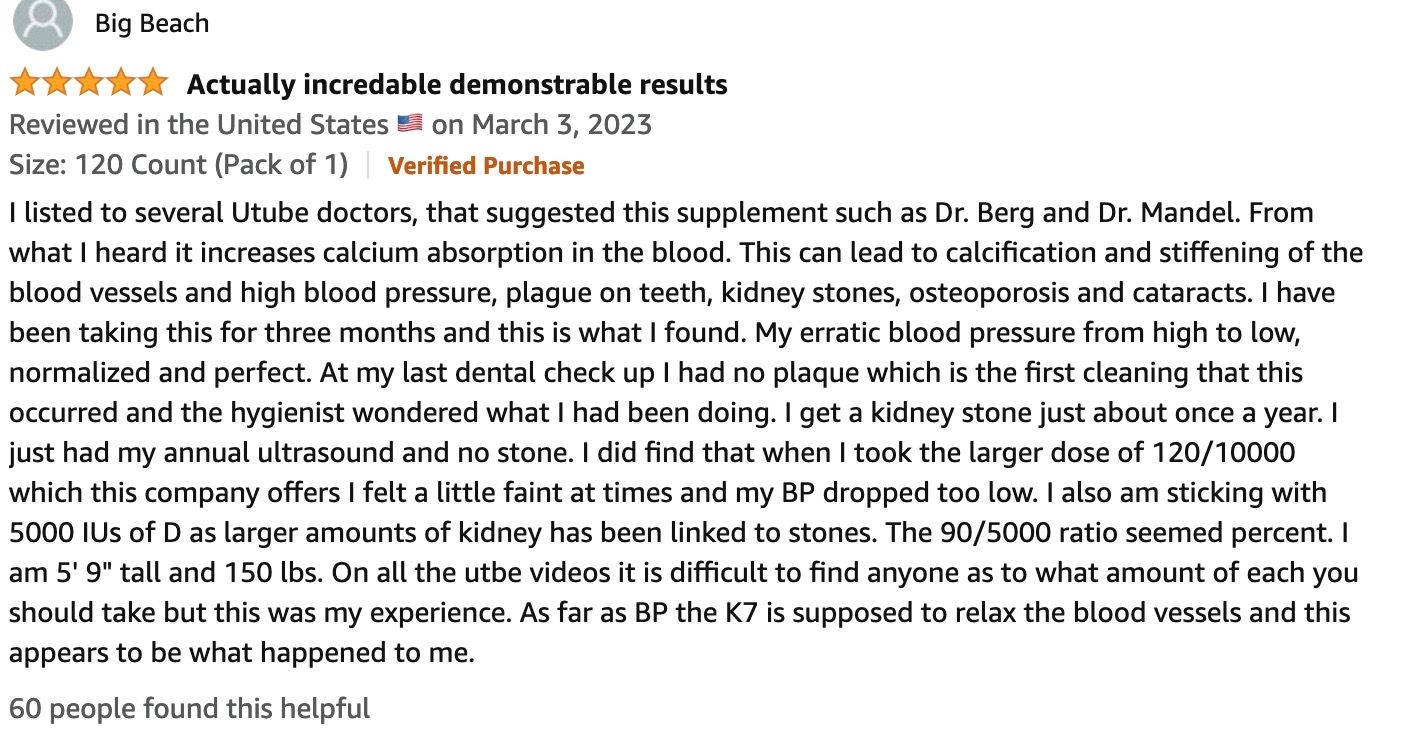
Kyolic Aged Garlic Extract Formula
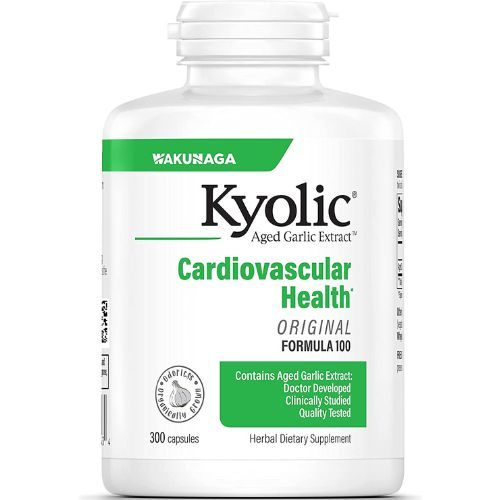
Kyolic Aged Garlic Extract Formula
Increases Nitric Oxide Production And Relaxes Blood Vessels
Why We Rave About It: Kyolic Cardiovascular, an organic, aged, and odorless garlic supplement, strengthens the cardiovascular system and promotes heart health. It also supports immune function, digestion, inflammation, and detoxification with its antioxidant properties.
What Else You Should Know: Kyolic Aged Garlic Extract is made from garlic aged up to 20 months, enhancing its nutritional value and making it gentle on the stomach. Always odorless, Kyolic ensures no garlic smell. Experience the benefits by trying it today!

Pure Encapsulations Taurine 1,000 mg
Why We Rave About It:
Pure Encapsulations Taurine 1,000 mg provides comprehensive support for heart health, organ systems, brain, and overall well-being. As the most abundant free amino acid in the heart and nervous system, taurine promotes healthy functioning in various areas and supports detoxification.
More You Should Know:
Free from common allergens, artificial additives, and GMOs, this supplement is made in a GMP-certified facility and third-party tested for purity. For wide-ranging support for your heart, brain, and overall health, choose Pure Encapsulations Taurine 1,000 mg.
Promising Review

What Your Doctor May Not Tell You About Hypertension: The Revolutionary Nutrition and Lifestyle Program to Help Fight High Blood Pressure by Dr. Mark Houston, MD
Why We Rave About It:
Dr. Mark Houston's natural, multi-faceted hypertension treatment regimen combines various dietary approaches to stop it, exercise, stress reduction, and medication. With a 90% success rate, readers learn about hypertension medications and their side effects.
More You Should Know:
The book covers endothelial damage from hypertension, traditional and alternative medicine pros and cons, and practical tips for lifestyle and dietary changes. Start your journey to better health with What Your Doctor May Not Tell You About Hypertension today!
KAL Calcium Citrate 1000mg

KAL Calcium Citrate 1000mg
adequate levels can help maintain healthy blood pressure
Why We Rave About It:
KAL Calcium Citrate 1000mg promotes healthy blood vessels, muscles, and nerves with chelated calcium for better absorption. ActivTab Technology ensures tablets disintegrate within 30 minutes for fast-acting support.
More You Should Know:
This gluten-free and lab-tested supplement is made in a state-of-the-art Utah facility. With a 60-Day Money Back Guarantee, you can trust KAL Calcium Citrate 1000mg to support your cardiovascular, muscular, and nervous systems.
Co Q10 100mg Softgels
Why We Rave About It:
Qunol 100mg CoQ10, the #1 Cardiologist Recommended form, offers superior absorption for faster results. Its patented, 100% water and fat-soluble formula is essential for energy production and increasing natural CoQ10 levels.
More You Should Know:
Ideal for adults and children over 4, Qunol 100mg CoQ10 improves overall health. Note that heat or sunlight may damage the product; ensure availability during delivery to receive it in perfect condition.
Nordic Naturals Ultimate Omega, Lemon Flavor
Why We Rave About It:
Nordic Naturals Ultimate Omega provides essential EPA & DHA fatty acids for optimal health in an easy-to-swallow softgel. Meeting the American Heart Association's daily recommended dose, it decreases inflammation, supports brain health, and boosts immunity with optimal absorption in triglyceride form.
More You Should Know:
Featuring a great lemon taste from fresh, wild-caught fish, this non-GMO, gluten, and dairy-free supplement has no artificial additives and is third-party tested for purity. Start your journey to better health with Nordic Naturals Ultimate Omega today!
Magnesium Glycinate 500mg
Why We Rave About It: Innate Vitality Magnesium Glycinate, a vegetarian formula with 500mg of highly absorbable magnesium, improves cardiovascular and muscle health. It relaxes blood vessels, regulates stress-response, and is free of common allergens and additives, while being Kosher and Halal certified.
More You Should Know:
This supplement supports heart and muscle health, reduces fatigue, promotes energy, and enhances brain function. It also encourages restful sleep, stronger bones, and relieves occasional stress and anxiety. Try Innate Vitality Magnesium Glycinate to start feeling better today!
Life Enhancement Potassium Supplement, 1020 mg
Why We Rave About It:
Life Enhancement Potassium Supplement offers an easy way to regulate blood pressure with 1020 mg of Potassium Bicarbonate in easy-to-swallow veggie capsules. Free of common allergens, it boosts daily potassium intake conveniently.
More You Should Know:
Aim for 2,000-4,000 mg of potassium daily, but avoid supplementation if you have hyperkalemia, kidney disease, or take specific medications. For others, this supplement helps balance sodium levels and improve overall health. Try it today and feel the benefits!
Superior Labs – Pure L-Arginine – Free Form – Optimal 3,000mg Dosage
Why We Love It:
Superior Labs' Pure L-Arginine supports cardiovascular health by helping produce nitric oxide to lower blood pressure. Its recommended dose ensures optimal L-Arginine intake.
What You Should Know:
Superior Labs products are made in Third-Party Certified NSF Facilities, ensuring pure, potent, safe, and effective products. Try Superior Labs' Pure L-Arginine today and experience the difference!
Nature's Way Premium Herbal Hawthorn Berries 1,530 mg
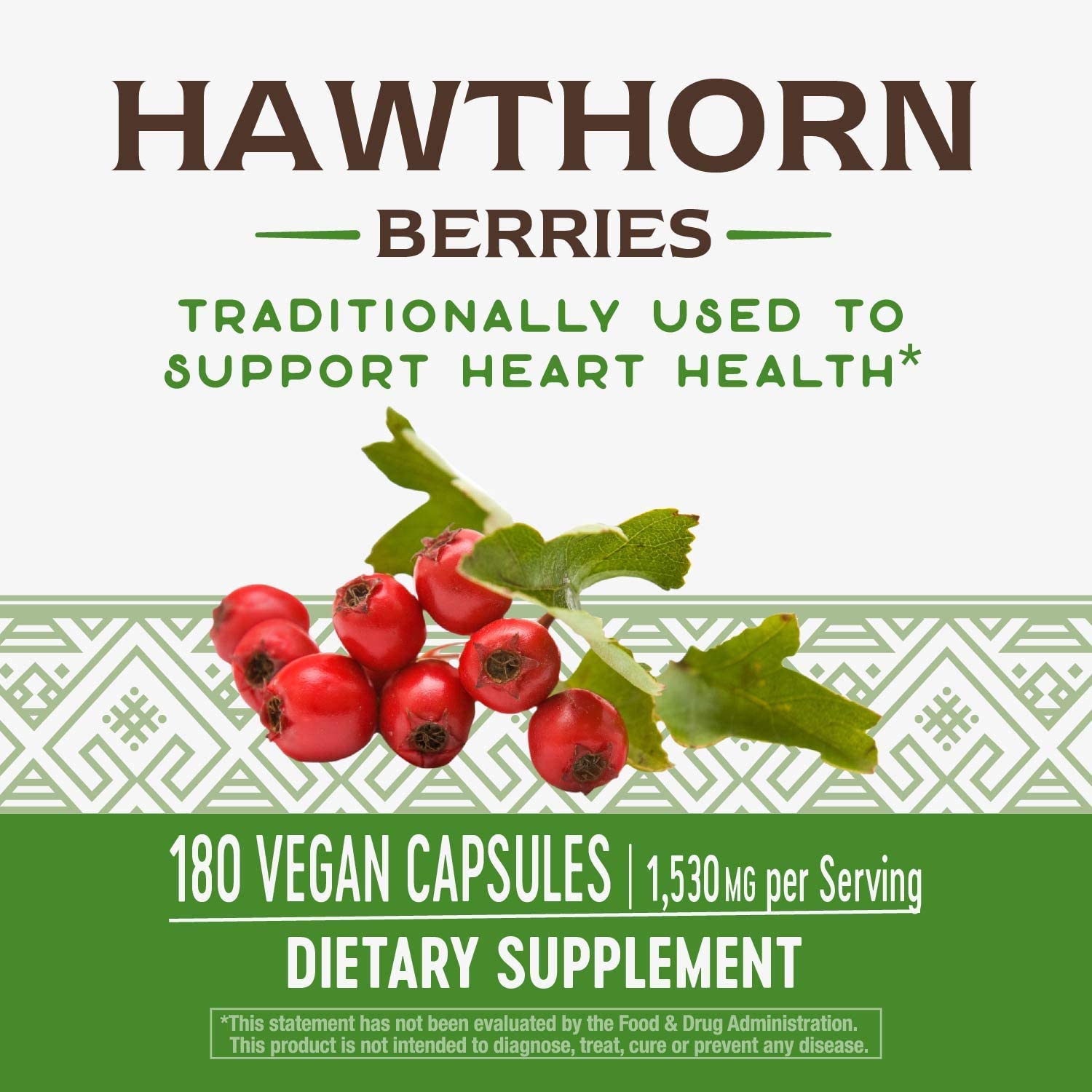
Hawthorne Berries
An herbal remedy that can help lower blood pressure and support heart health
Why We Rave about It:
Nature's Way Premium Herbal Hawthorn Berries 1,530 mg lowers blood pressure and supports heart health. These gluten-free, vegan-friendly berries are free of common allergens and artificial additives.
More You Should Know:
Rich in antioxidants, Hawthorn berries protect against oxidative stress and inflammation. Easy to take, consult a healthcare professional for recommended dosage. Try Nature's Way Premium Herbal Hawthorn Berries 1,530 mg to support your heart health!
Functional Medicine Doctors' Recommendations for Hypertension:
1. Eat a whole-food, plant-based diet.
2. Limit sodium intake to 2,300 mg/day.
3. Increase potassium-rich foods.
4. Practice stress-reduction techniques.
5. Exercise regularly (150 mins moderate or 75 mins vigorous/week).
6. Maintain a healthy weight.
7. Moderate alcohol consumption.
8. Quit smoking.
9. Get 7-9 hours of sleep nightly.
10. Consult a healthcare professional for supplements.
Work with your healthcare provider to develop a personalized plan for managing blood pressure.
White Coach Hypertension Questions
How do you reverse white coat syndrome?
White coat syndrome can be reversed by learning relaxation techniques, such as deep breathing and progressive muscle relaxation. It is also helpful to practice relaxation techniques before doctor's appointments to help reduce anxiety and stress. Additionally, it may be helpful to visit the doctor's office when it is not busy, as this can help reduce the feeling of being overwhelmed. Finally, it is important to speak openly and honestly with your doctor about any anxiety or stress you may be feeling.
What is the average blood pressure for white coat hypertension?
The average blood pressure for white coat hypertension is around 135/85 mmHg. White coat hypertension is a condition where a person's blood pressure increases due to the stress of being around medical staff or in a medical environment. This is usually higher than the person's normal blood pressure. It is important to note that white coat hypertension is not a medical condition, but rather a sign of anxiety or stress. To accurately diagnose white coat hypertension, multiple blood pressure readings should be taken in different settings.
What causes white coat syndrome?
White coat syndrome is a type of anxiety disorder that causes a person to experience high blood pressure when visiting the doctor. It is caused by a combination of psychological and physiological factors, including fear of being judged or examined, fear of needles or injections, fear of the unknown, and the body's natural response to stress. When a person is under stress, their body releases hormones like adrenaline and cortisol, which can cause an increase in heart rate and blood pressure.
How do you fight white coat syndrome?
White coat syndrome is a condition characterized by an increase in blood pressure when in the presence of a healthcare professional. To fight white coat syndrome, it is important to practice relaxation techniques such as deep breathing, progressive muscle relaxation, or guided imagery. Additionally, it can be helpful to practice talking to healthcare professionals in a calm and relaxed manner. Finally, it is important to remember to take regular breaks and practice self-care to reduce stress and anxiety.
Is white coat syndrome anxiety?
Yes, white coat syndrome is a type of anxiety disorder that is triggered by a visit to the doctor or other medical setting. It is characterized by a sudden onset of high blood pressure and other physical symptoms such as rapid heart rate and sweating. This condition is thought to be caused by a combination of psychological and physiological factors, including fear of the unknown, fear of being judged, and fear of pain or discomfort. It is important to note that white coat syndrome is not a sign of a serious medical condition, but it can be disruptive and cause distress. Treatment options may include cognitive-behavioral therapy, relaxation techniques, and medications.
Is white coat syndrome a mental disorder?
No, white coat syndrome is not a mental disorder. It is a physical condition characterized by a sudden increase in blood pressure when a person is in the presence of a doctor or other healthcare professional. It is usually caused by anxiety, fear, or stress in the presence of a healthcare professional and is not considered to be a mental disorder.
Frequently Asked Questions
Are you looking for a non-pharmacological treatment for hypertension? It can be difficult to know which treatments are safe and effective, especially when there are so many options available.
We've put together a comprehensive list of the most frequently asked questions about non-pharmacological treatments for hypertension so you can make an informed decision about your health. Learn more about different changes to lifestyle, physical activity, and dietary modifications that can help with hypertension.
Why is hypertension called a silent killer disease?
Hypertension, or high blood pressure, is often referred to as the “silent killer” because it can cause serious damage to the body without any obvious symptoms.
Hypertension can damage the arteries, leading to a stroke, heart attack, or other complications.
It can also increase the risk of kidney disease and other organ damage.
Because there are usually no symptoms associated with hypertension, it is important to have regular check-ups to ensure that your blood pressure is at a healthy level.
What are the coping mechanisms for hypertension?
The most important coping mechanism for hypertension is changes in lifestyle such as regular exercise, healthy eating habits, reducing stress, and avoiding alcohol and tobacco.
Additionally, medications such as diuretics, beta blockers, ACE inhibitors, and calcium channel blockers can be used to help control blood pressure.
Other coping mechanisms include relaxation techniques such as yoga, meditation, and deep breathing, as well as stress management therapies like cognitive behavioral therapy and biofeedback.
How long can you have hypertension before it causes damage?
Hypertension can cause damage to the body’s organs over time. The amount of time it takes for damage to occur depends on a person’s individual circumstances, but it is generally accepted that hypertension should be treated as soon as it is diagnosed.
If left untreated, hypertension can cause damage to the heart, brain, and other organs, as well as increase the risk of stroke, heart attack, and other serious health problems.
It is important to monitor and manage your blood pressure levels to reduce the risk of long-term damage.
How long can you live with untreated hypertension?
It depends on the severity and duration of the untreated hypertension. People with untreated hypertension are at a higher risk of developing serious complications such as stroke, heart attack, and kidney failure.
These complications can significantly reduce life expectancy. On average, people with untreated hypertension can expect to live about 6 to 10 years less than those with controlled hypertension.
What are non-pharmacological treatments for hypertension?
Non-pharmacological treatments for hypertension include changes in lifestyl such as eating a healthy diet, exercising regularly, reducing alcohol and caffeine consumption, and quitting smoking.
Other non-pharmacological treatments include relaxation techniques such as yoga, meditation, and deep breathing exercises.
Additionally, regular monitoring of blood pressure and monitoring of salt intake can help to manage hypertension.
What is non-pharmacological treatment of hypotension?
Non-pharmacological treatment of hypotension includes changes in lifestyle such as increasing salt intake, drinking plenty of fluids, avoiding excessive alcohol consumption, and exercising regularly.
Other non-pharmacological treatments may include using compression stockings, elevating the head of the bed, and avoiding standing for long periods of time.
Additionally, some dietary supplements such as Coenzyme Q10 and L-arginine may be beneficial.
What are 3 treatments for hypertension?
The three primary treatments for hypertension are changes in lifestyle, medications, and natural remedies.
Changes in lifestyle include reducing salt intake, increasing physical activity, and eating a healthy diet.
Medications used to treat hypertension include diuretics, beta blockers, calcium channel blockers, ACE inhibitors, and ARBs.
Natural remedies for hypertension include yoga, meditation, and supplements such as garlic, fish oil, and CoQ10.
What is the best treatment for hypertension?
The best treatment for hypertension depends on the underlying cause. It is important to consult with your doctor to determine the best course of treatment for your specific case.
Generally speaking, changes in lifestyle such as reducing salt intake, increasing physical activity, and maintaining a healthy weight are recommended.
Additionally, medications such as ACE inhibitors, angiotensin receptor blockers, beta blockers, calcium channel blockers, and diuretics may be prescribed to help lower blood pressure.
What are the first treatments of hypertension?
The first line of treatment for hypertension is lifestyle modifications, such as reducing salt intake, increasing physical activity, and reducing stress.
Other treatments may include medications, such as diuretics or beta blockers, or more aggressive treatments such as angiotensin-converting enzyme inhibitors or angiotensin receptor blockers.
What are 5 medications that are available to treat hypertension?
Five medications that are available to treat hypertension include angiotensin-converting enzyme (ACE) inhibitors, angiotensin II receptor blockers (ARBs), calcium channel blockers (CCBs), diuretics, and beta-blockers.
ACE inhibitors work by blocking the production of a hormone that causes blood vessels to narrow, while ARBs block the action of this hormone.
CCBs work by relaxing the blood vessels and allowing blood to flow more easily, while diuretics help the body get rid of excess fluid and reduce blood pressure.
Beta-blockers work by blocking the action of certain hormones that can cause an increase in blood pressure.
How do you stay calm during a blood pressure test?
There are several things you can do to help stay calm during a blood pressure test.
Taking a few deep breaths and focusing on your breathing can help to relax your body and reduce stress.
You can also try visualization techniques, such as imagining a peaceful place or a happy memory.
Listening to calming music or even talking to the technician can also help to distract you from the test and keep your mind off of it.
Finally, try to relax your muscles by tensing and releasing them one at a time.
How can I lower my blood pressure before a doctor's appointment?
The best way to lower your blood pressure before a doctor's appointment is to practice relaxation techniques such as deep breathing, progressive muscle relaxation, and guided imagery.
You can also try exercising regularly, eating healthy food, and reducing your salt and caffeine intake.
Additionally, it may also be helpful to practice stress management techniques such as yoga, meditation, and mindfulness.
How important is reduced sodium intake to treat high blood pressure?
Reduced sodium intake is very important in treating hypertension. The American Heart Association recommends consuming less than 2,300 milligrams of sodium per day.
For those with high blood pressure, it is recommended to reduce sodium intake to 1,500 milligrams per day. Reducing sodium intake can help lower blood pressure and reduce the risk of stroke, heart attack, and other cardiovascular diseases.
What kind of blood pressure cuff is best for blood pressure measurement?
The best type of blood pressure cuff for accurate measurement is an automated, oscillometric cuff. This type of blood pressure monitor cuff is designed to detect the oscillations in your blood pressure as it circulates through your body. It works by using a pressure sensor to detect these oscillations and then calculates your blood pressure based on these readings.
It is important to use an automated cuff that is the correct size for your arm, as this will help ensure the most accurate readings. Additionally, it is important to use a cuff that is regularly calibrated to ensure accuracy.
How does blood pressure medicine work for lowering blood pressure?
Blood pressure medicine works by decreasing the amount of blood that the heart pumps out and by widening the blood vessels, allowing blood to move more easily through them. This helps to reduce the force on the walls of the arteries, which in turn lowers the blood pressure.
Some blood pressure medicines work by blocking certain hormones, such as angiotensin II, which is responsible for causing the blood vessels to narrow.
Other medicines work by increasing the amount of urine that is produced by the body, which helps to reduce the amount of salt and water in the body and thus lowers the blood pressure.
What blood pressure reading is likely to cause chronic kidney disease (CKD)?
High blood pressure is a major risk factor for developing CKD. According to the American Heart Association, a systolic blood pressure of 140 mmHg or higher and/or a diastolic blood pressure of 90 mmHg or higher can cause CKD. If your blood pressure is consistently above these levels, it is important to talk to your doctor about ways to lower it.
What are the top cardiovascular risk factors?
The top cardiovascular risk factors are high blood pressure, high cholesterol, smoking, physical inactivity, obesity, diabetes, and a family history of heart disease.
These risk factors can be managed through changes in lifestyle such as eating a healthy foods, exercising regularly, and quitting smoking. Additionally, medications and other treatments may be necessary to reduce the risk of developing heart disease.
Is losing weight to normal body weight helpful to manage high blood pressure?
Yes, losing weight to a normal body weight can be helpful in managing high blood pressure. If you are overweight or obese, losing even a few pounds can help lower your blood pressure.
Normalizing weight can also help you to reduce your risk of developing other health conditions such as diabetes, heart disease, and stroke. In addition, maintaining a healthy body weight and exercising regularly can help to keep your blood pressure in check.
What is the difference between essential hypertension and resistant hypertension?
Essential hypertension is a type of hypertension that does not have an identifiable cause and is usually managed with changes in lifestyle and medications.
Resistant hypertension is a type of hypertension that does not respond to 3 medications or changes in lifestyle and medications, and is usually caused by an underlying medical condition. It is important to identify the underlying cause of resistant hypertension in order to effectively treat it.
What are the fastest approaches to stop hypertension?
The fastest way to stop hypertension is to make changes in lifestyle. These include eating a healthy foods low in sodium, exercising regularly, limiting alcohol intake, and quitting smoking.
In addition, taking medications prescribed by your doctor can help control your blood pressure. Regular monitoring of your blood pressure can help you stay on track with your treatment plan and make sure that your blood pressure is under control.
Why do people develop high blood pressure?
High blood pressure, also known as hypertension, is caused by a variety of factors, including lifestyle choices, genetics, and underlying medical conditions.
Some of the most common causes of high blood pressure include obesity, physical inactivity, smoking, excessive alcohol consumption, a high-sodium diet, and stress.
In some cases, medical conditions such as kidney disease, thyroid disorders, and sleep apnea can also cause high blood pressure.
How often should you have your blood pressure checked?
It is recommended that you have your pressure checked at least once a year.
If you have been diagnosed with high blood pressure, it is recommended that you have your pressure checked more frequently, such as every 3 to 6 months.
If you have any risk factors for high blood pressure, such as being overweight or having a family history of high blood pressure, it is recommended that you have your blood pressure checked more often.
What is a significant reduction in systolic pressure and diastolic pressure?
A significant reduction in systolic pressure and diastolic pressure is a drop of more than 20 mmHg in the systolic pressure and 10 mmHg in the diastolic pressure. This is usually indicative of hypotension, or low blood pressure, which can be caused by a variety of factors such as dehydration, shock, or certain medications.
It is important to get checked out if you experience a significant unexplained reduction in your blood pressure, as it could be a sign of a serious underlying condition.
What factors affect diastolic blood pressure?
Diastolic blood pressure is affected by several factors, including age, gender, body weight, physical activity, diet, medications, and overall health.
Age is an important factor, as diastolic blood pressure tends to increase with age.
Gender also influences diastolic blood pressure, with men generally having higher diastolic pressures than women.
Body weight is another factor, as people with higher body mass index (BMI) tend to have higher diastolic pressures.
Physical activity and diet also play a role, as people who are more active and eat a healthy diet tend to have lower diastolic pressures.
Finally, medications and overall health can also affect diastolic blood pressure.
The best way to prevent hypertension-related health issues is to manage your blood pressure through changes in lifestyle, such as maintaining a health-supporting diet and exercising regularly. If you have any questions about hypertension or your blood pressure, be sure to consult your doctor for further advice.
Hypertension is a serious medical condition, so it’s important to take steps to protect your health. By being aware of the risks associated with hypertension and taking action to reduce your blood pressure, you can help protect yourself from the silent killer.
